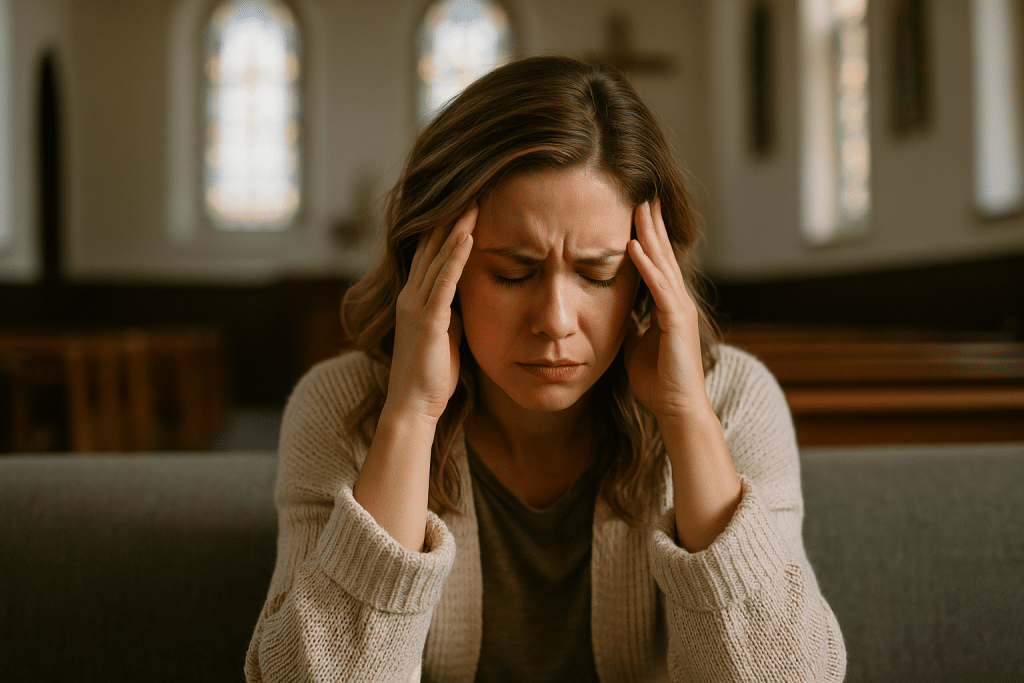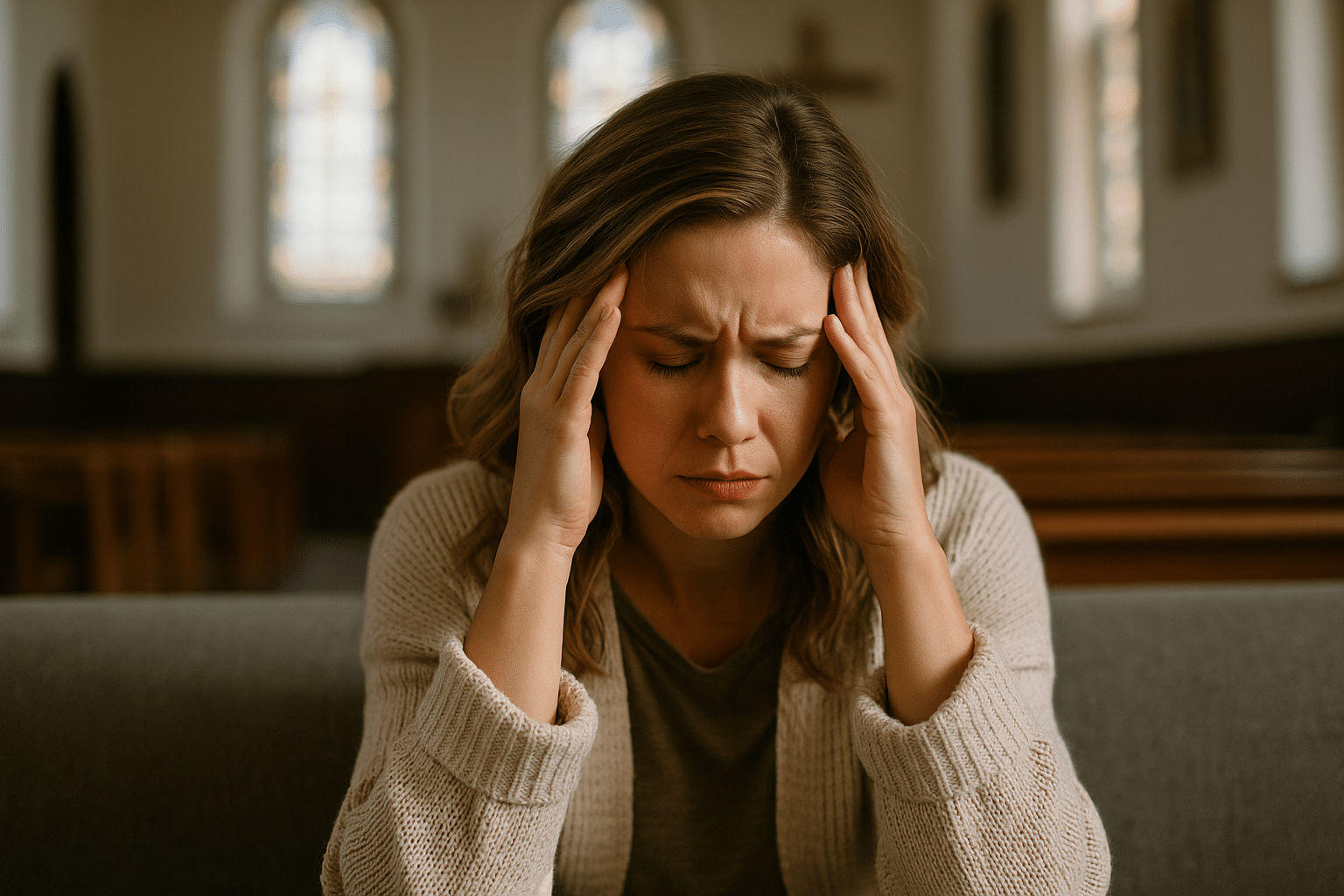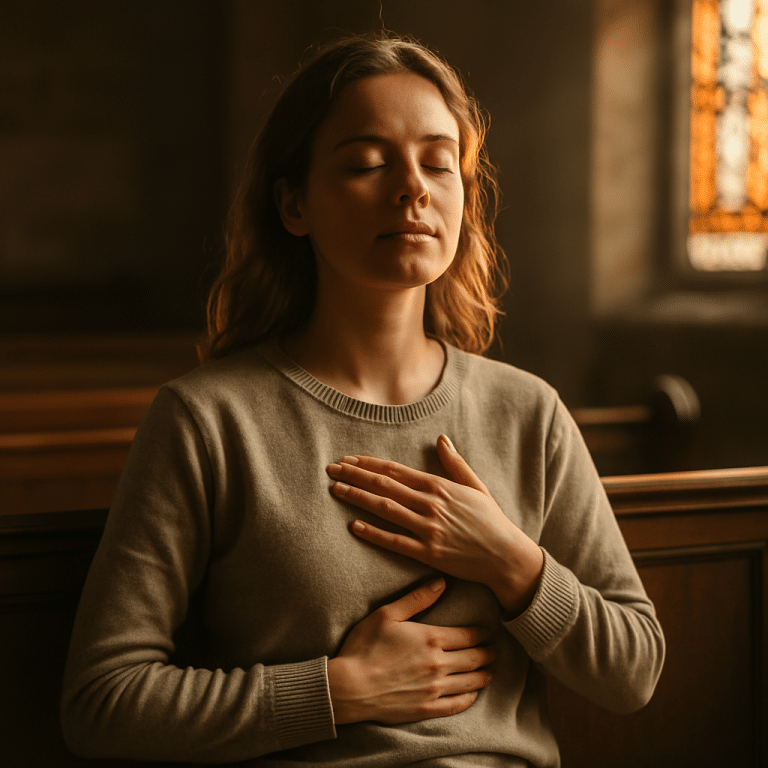Sensory Overload: Christian Guide to Calm and Joy
Estimated reading time: 6 minutes
Living in the twenty‑first century often feels like standing beneath a waterfall of sights, sounds and notifications. That torrent can leave any believer exhausted and disconnected from the gentle voice of Jesus. The term sensory overload describes the moment when your God‑given nervous system receives more input than it can process. Instead of shame, Scripture offers hope: Christ invites the weary to come and rest. This article explains why overload happens, how faith and science agree on solutions and which practical tools can restore calm so you can enjoy a deeper walk with the Lord.
Understanding Sensory Overload
The nervous system that God knit together in your mother’s womb (Psalm 139:13) works brilliantly most of the time, filtering ordinary noise so you can stay focused on His purposes. Yet the sympathetic “fight‑or‑flight” branch can misfire whenever stimuli stack up. Medical researchers at Cleveland Clinic explain that overload raises cortisol, heart rate and anxiety. Add ringing phones, fluorescent lights and never‑ending news banners and your brain interprets everyday situations as emergencies.
A 2023 study by Dr. Gloria Mark shows most people switch digital tasks every 47 seconds, an attention fracture that leaves the mind buzzing (APA Press). The Lord never designed you to process infinity; even Jesus withdrew to quiet places (Luke 5:16). Recognising the physiological piece removes false guilt and prepares the way for grace‑filled action. Scientists describe overload symptoms as headaches, irritability and the sudden urge to flee. Charles Spurgeon wisely reminded his congregation that “the physician is often as needful as the minister.” Honest awareness of sensory overload is therefore the first step toward Christ‑centred resilience.
Everyday Causes in Modern Life
Noise pollution now averages more than 85 decibels on many city streets. That level not only harms hearing; it elevates blood pressure. Combine that din with the blue‑light glare of giant LED billboards, the jostle of public transport and the perpetual vibration of smart‑watches and you have a recipe for near‑constant arousal. A recent U.S. Surgeon General advisory linked heavy scrolling to anxiety and sleep disruption.
Theologian‑physician Luke would nod at those findings; he chronicled how crowds pressed Jesus until the Lord intentionally stepped away. When you notice church fellowship hour becoming a sensory minefield, remember you are not weak—your circuitry is saturated. Researchers call this layer‑upon‑layer stimulation “sensory stacking.” Once you see the pattern, preventive boundaries become possible and obedience feels doable.

Biblical Invitation to Rest
From Eden’s seventh‑day Sabbath (Genesis 2:3) to Jesus’ promise “Come to Me…and I will give you rest” (Matthew 11:28), Scripture repeatedly counters sensory overload with holy stillness. Elijah’s breakdown in 1 Kings 19 shows God’s gentle sequence: sleep, food, then a quiet whisper. Modern neuroscience affirms that pattern—rest resets the parasympathetic system so you can hear.
Spending just twenty minutes in nature lowers cortisol by 21 percent according to Harvard Health. Sabbath is therefore both command and neurological necessity. When Mary chose contemplation over Martha’s commotion, Jesus said she picked “the better part” (Luke 10:42). Spurgeon added that the body often needs a prescription as much as a sermon; accepting that truth turns rest from luxury into obedience.
Solutions for Sensory Overload
Practical relief starts with simple, repeatable skills that calm the body while inviting the Holy Spirit to minister peace. Choose one or two practices to begin this week, journal the results and thank God for every small victory. Tracking progress reduces discouragement and nurtures hope.
Remember that rapid relief works because God designed the vagus nerve to slow heart rate when we breathe slowly or speak calmly. A 2021 review in Social Sciences found that meditative prayer activates the same parasympathetic pathways as clinical relaxation therapy. Pair each skill with Scripture and you engage both faith and physiology.
Before you learn the techniques below, pray Psalm 46:10—“Be still and know.” Such framing shifts coping skills from self‑help gimmicks to acts of discipleship that train your body to stay present with Jesus.
Immediate Grounding Techniques For Overstimulation
3‑3‑3 Breathing. Inhale for three counts, hold for three, exhale for three while whispering “Jesus, calm me.” 5‑4‑3‑2‑1 Sensing. Name five things you see, four you feel, three you hear, two you smell, one you taste. Cold‑water splash. Run cool water over your wrists to trigger the dive reflex. Grounding object. Keep a smooth cross or stone in your pocket. Grace Tworek, PsyD, notes that practising these drills daily wires neural pathways, making them faster under stress. Paul’s call to “train yourself for godliness” (1 Tim 4:7) applies—rehearsed grounding becomes spiritual muscle memory.
Daily Rhythms and Sabbath Rest
Create sensory sabbaths: ten quiet minutes outside after dinner or a phone‑free first hour each morning. Curate your environment—wear tinted glasses in big‑box stores, carry earplugs in your Bible case and choose restaurants with soft lighting. Prioritise sleep; a dark room and tech curfew lower baseline arousal so Sunday worship feels welcoming instead of exhausting. Many churches now offer quiet corners or sensory rooms; asking for accommodation is faithful stewardship, not weakness. Tech fasts, shared walks and weekly prayer partners build accountability and multiply perseverance.

Recommended Tools and Products
The items below are not magic bullets, yet they can dramatically cut overstimulation so your heart can attend to Christ.
- Loop Quiet reusable earplugs – Reduce volume by 24 dB while keeping speech clear, ideal for loud worship sets.
- Sony WH‑1000XM5 noise‑canceling headphones – Excellent ANC for Scripture audio in a busy home office.
- Infinity Cube fidget tool – Tactile focus device that pairs well with breath prayer during sermons.
Supplements such as magnesium glycinate or lavender essential oil show calming potential, but consult a trusted physician. If overload remains relentless, a licensed therapist may suggest CBT or short‑term medication. Using medicine when needed is faithful stewardship, not failure. See our full guide on deep breathing exercises and the cornerstone tutorial on panic‑attack relief for step‑by‑step help. Churches can also imitate St. Joseph’s “Still Waters” room, offering dim lights and soft seating so every believer can worship without fear.
Conclusion: Embrace Christ’s Peace
Feeling overwhelmed is not a moral failure; often it is a physiological signal that your body needs margin. Jesus calmed storms outside Galilee and He still quiets storms inside anxious hearts. By recognising sensory overload early, applying science‑supported skills and leaning into biblical rhythms of rest, you position yourself to receive His joy (John 15:11). Celebrate every small victory, stand on His promises and remember that eternity holds a world where “nothing will harm or destroy” (Isaiah 11:9). Until then, may the peace of Christ guard your heart and mind.







